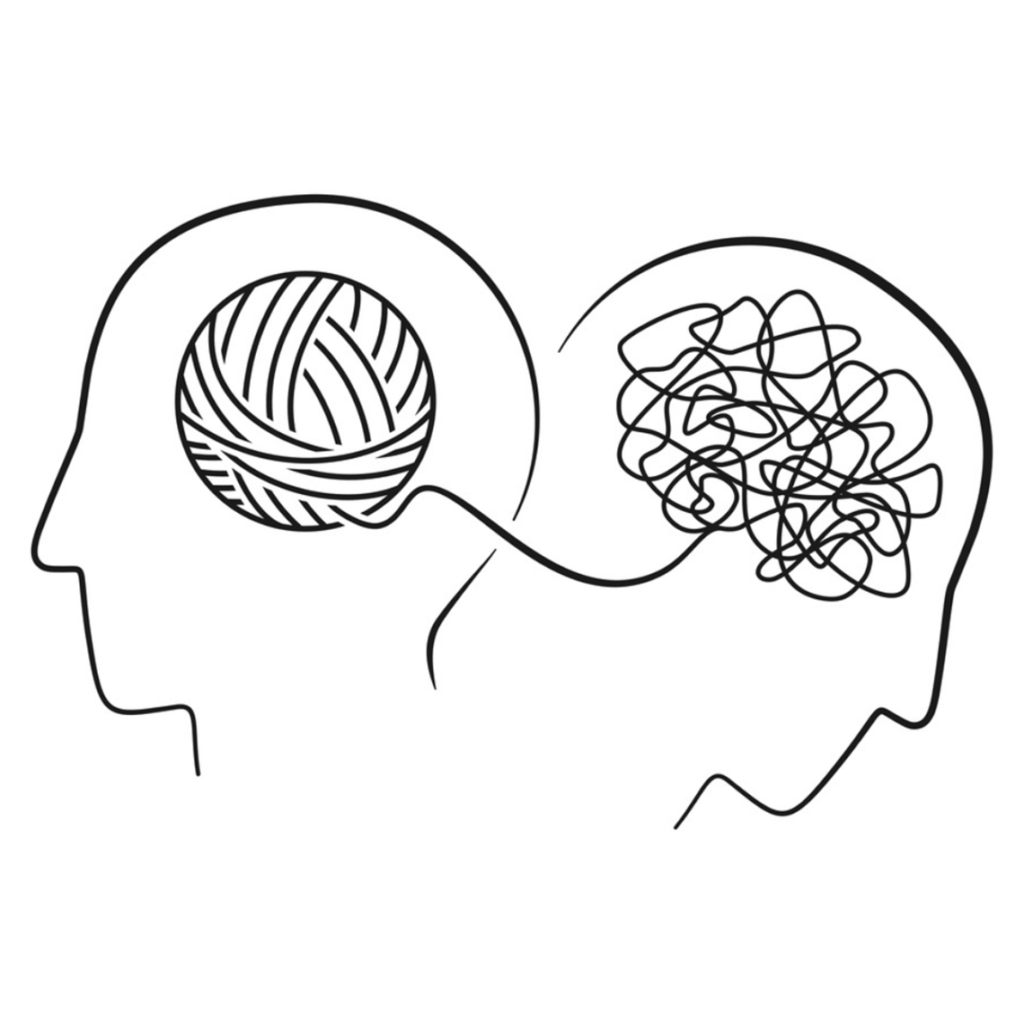Related Resources
For Managing Stress
Understanding the Impact of Stress & Trauma: The Window of Tolerance
Dr. Kate Truitt walks us through the window of tolerance and the impact of long-term stress and trauma on the mind and body.
How Can Breath Control Reduce Stress?
Dr. Kate Truitt explains how breath control can be a powerful tool for reducing stress, especially when we understand how our body responds to it.
Why Self Compassion Wins Over Self Criticism Every Time
Dr. Kate Truitt reminds us that living with mental health considerations is difficult, and explains why we need to learn to lean in with self-compassion to find healing.
Stress, Trauma, and the Brain: Why You React Before You Think (And How to Change It)
By Dr. Kate Truitt
You’re in a meeting and your boss suddenly calls on you. Your heart pounds, your mind goes blank, and panic sets in even though you know the answer.
Or maybe you’re having a conversation with a loved one, and their voice takes on a sharper tone. Before you can stop yourself, you snap back defensively.
Why does this happen?
It feels automatic like your body is reacting before you even realize you even have time to think. And in many ways, that’s exactly what’s happening. Your brain is designed to prioritize survival over logic, which is why stress or conflict can trigger an intense response before your rational mind has a chance to catch up.
This reaction isn’t just personality or habit. It’s a result of how trauma and chronic stress rewire the brain. And this will be one of the things I will talk about on my upcoming session at the Quantum Way Summit 2025.
How Stress and Trauma Rewire Your Brain

When you experience repeated stress or trauma, your brain adapts by creating shortcuts for survival. This is why you might overreact to situations that logically don’t seem threatening. Your brain isn’t malfunctioning. It’s trying to keep you safe.
There are three key areas of your brain that are involved in this process
- Amygdala “Amy” – Your Brain’s Alarm System
Amy is the first responder in your brain. Her job is to detect potential danger and trigger fight, flight, freeze, or fawn responses. But when trauma is involved, Amy gets overly sensitive, treating even minor stressors as threats.
Example: You get a critical email from your boss and instead of seeing it as a constructive feedback, Amy perceives it as an attack. You immediately feel defensive, overwhelmed, or anxious.
- Hippocampus – The Memory Keeper
This part of your brain is responsible for storing and organizing memories. But under chronic stress, the hippocampus can get confused, making it difficult to separate past threats from present situations.
Example: A stressful childhood experience with authority figures may cause you to feel intense anxiety around supervisors even when they’re supportive.
- Prefrontal Cortex – The Thinking Brain
This is where logic, reasoning, and decision-making happen. But when stress hits, Amy hijacks the system and sends the prefrontal cortex offline which is why you can’t think clearly in stressful moments.
Example: When someone startles you, your Amygdala reacts instantly and only afterward does your prefrontal cortex catch up and realize it was just a friend saying hello.
Stress and trauma can reshape how our mind and body respond to daily life, sometimes temporarily and other times leading to long-term changes. In a well-regulated system, we naturally rebalance after stress. However, when stress is intense or prolonged, it can progressively disrupt this balance, making it harder to regain stability. This may manifest as ongoing anxiety, depression, or other emotional and physiological challenges. Learn more about how stress and trauma impact the brain and body in this psychoeducational video.
How To Rewire Your Brain for Resilience

The beauty of neuroplasticity is that your brain is constantly learning and adapting. It’s not fixed and it’s certainly not broken. Even if your stress responses feel automatic now, you have the power to change them with the right techniques.
By practicing new behaviors, you can train to respond rather than react, moving out of survival mode and into a space of resilience and self-compassion.
Here’s how to start rewiring your brain:
- Practice Mindful Pauses
When you feel triggered or emotionally reactive, whether it’s a sharp email from your boss or a tense conversation with a loved one, your amygdala kicks into overdrive before your rational brain has time to process it. Pausing before reacting is a game-changer.
What you can try is when your stress strikes, take a deep breath in for four seconds, hold for two, and exhale for six seconds. This simple act helps engage your prefrontal cortex, keeping you grounded instead of overwhelmed. To learn more about breath control and how it can help reduce stress, watch this short psychoeducational video.
- Reframe the Threat
Challenge your amygdala’s alarm system. Remember that Amy’s job is to detect danger but sometimes it overreacts based on past experiences. The next time you feel triggered, ask yourself:
- Is this situation truly dangerous?
- Or is Amy reacting to an old pattern?
When you consciously question the threat, you give your brain the chance to choose a different response. This simple shift can turn anxiety into awareness and reactivity into resilience.
- Practice Self-Compassion
Many of us are our own worst critics, especially when we feel overwhelmed. But research shows that self-compassion can actually calm the amygdala and reduce stress response.
The next time you feel stressed, put a hand on your heart and say, “This is a hard moment but I am safe. I am doing my best and that is enough.” In this psychoeducational video, I delve deeper into why self-compassion wins over self-criticism every time.
Speaking to yourself with kindness activates the soothing system of your brain, shifting you out of stress mode and into a state of calm and clarity.
Your Brain Can Change
If you’ve ever felt like your reactions control you, remember this: Your brain is not stuck. This is one of the core topics on my book, Healing in Your Hands.
Understanding how stress and trauma impact your brain is the first step toward reclaiming control. The next step is learning how to work with your brain to rewire it for safety, resilience, and growth.
At Quantum Way Summit 2025, I’ll be sharing:
- How neuroplasticity works and why it’s key to healing from trauma and building resilience.
- How stress and trauma reshape the brain, affecting emotions, behavior, and decision-making.
- How to work with “Amy,” your amygdala, to reframe stress responses and develop self-compassion.
Quantum Way Summit 2025 runs from March 17th to 22nd, 2025. Don’t miss this opportunity to take charge of your brain’s healing journey.
References
- HelpGuide.org. (n.d.). How to cope with traumatic events. HelpGuide.org. https://www.helpguide.org/mental-health/ptsd-trauma/traumatic-stress
- Felman, A. (2023, October 27). Why stress happens and how to manage it. Medical News Today. https://www.medicalnewstoday.com/articles/145855
- Ressler, K. (2021, February 15). Protect your brain from stress. Harvard Health Publishing. https://www.health.harvard.edu/mind-and-mood/protect-your-brain-from-stress










